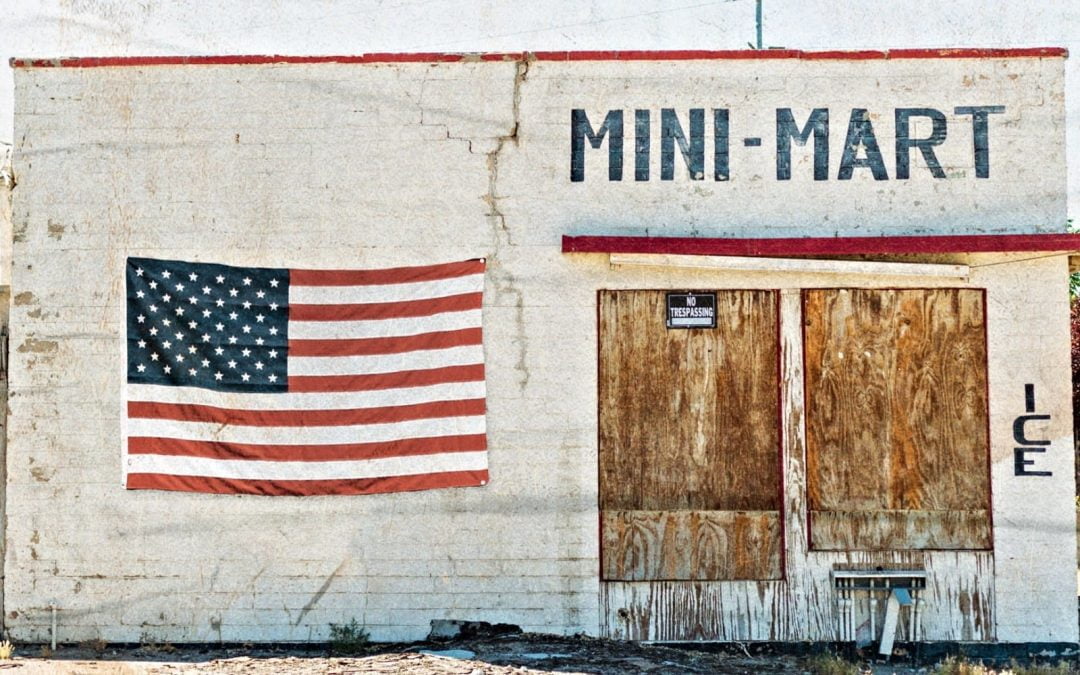I have traveled the country and other parts of the world observing, researching and addressing hunger and poverty for the past 20 years.
Much of what I have learned about addressing hunger and poverty is similar to what I learned by working in disaster response.
The problem is often overwhelming, and we need to find a way to work together in a coordinated response to address these issues that have been around for thousands of years.
Years after Hurricanes Katrina, Gustav and Ike, while living and working in San Antonio, I was offered the opportunity to put these ideas to the test when I was asked by Texas Baptists to start an organization focused specifically on coordinating a collective response to hunger, the Texas Hunger Initiative.
The premise was that hunger and poverty are too large and too complex to address alone. We would all need to work together in a coordinated capacity if we wanted to make a dent in them, much less end them.
We also knew we had a cultural problem. Our nation tends toward blaming the hungry and poor for their plight rather than walking alongside them to find solutions.
Blaming the poor for their poverty only adds insult to injury and is largely an inaccurate diagnosis.
We also had a spiritual problem. Jesus spoke frequently about loving our neighbor in practical and tangible ways, such as providing food for the hungry.
Hunger in Texas, however, was more prevalent than in almost any other state in the nation or in any developed country around the world.
We needed a stronger understanding of our collective call to love God and our neighbor, and we needed to move with a sense of urgency, as I would soon learn.
As I was transitioning into this new position, I was told I needed to meet Pastor Dan Trevino because his congregation was providing food for the hungry.
Dan’s congregation was on the south side of San Antonio, a sister neighborhood to the west side, where I was living.
Dan spoke to me about his congregation’s ministries in the community. They had a charter school that used the church’s education building, a food pantry, a community garden, and literacy and employment classes.
If you can think of an idea for ministry, Dan and his church were probably doing it.
As we talked and toured the church, Dan told me about a formative experience. He said he and his sons went to the church one Saturday morning before dawn to make breakfast tacos for the elders in the congregation.
When they pulled into the church parking lot, the headlights of his van revealed children in the church’s dumpster. He and his sons were startled, and so were the children in the dumpster.
The kids tried to get out of the dumpster and run away, but Dan was able to get to them and calm their fears.
He invited them into the church’s kitchen and made them breakfast tacos before the elders arrived. Once they were full, he began to ask them why they were in the dumpster.
Slowly, the boys began to open up and told him that they did not have any food in the house, so they had snuck out while it was still dark to rummage through the dumpster to see if they could find something to eat.
I was stunned. Dan’s church wasn’t far from the Riverwalk and all that we enjoy visiting in San Antonio.
Yet there were children in his community so impoverished that they were rummaging through a dumpster to find food.
This was a story I expected to hear about the developing world, but downtown San Antonio?
My shock led to dismay. How could our nation passively let children experience such extreme circumstances? How could the church?
Gandhi called poverty the harshest form of violence. I believe hunger is the harshest form of poverty.
Hunger is debilitating. It stimulates physical pain, anger, lethargy and depression. It will keep you up at night and ironically cause drowsiness during the day.
I can only imagine the shame and humiliation parents experience when their children miss meals.
One of our primary responsibilities is to provide a stable household for our families. We want to make sure they have food, a consistent place to sleep and a loving environment.
If we were unable to provide them with three meals a day and a place to sleep, we would probably feel inadequate and ashamed.
These dumpster-diving kids were no different than the hurricane survivors on the bridge: They had been stranded by tragedy.
Travel to any urban or rural impoverished community, and you will find similar stories everywhere.
Today in the United States, over 40 million Americans are food insecure (or at risk of hunger).
According to the U.S. Department of Agriculture, this means that, at times during the year, these individuals live in households that are uncertain of having or are unable to acquire enough food to meet the needs of all their family members because they have insufficient money or other resources for food.
Nearly one out of six children in the U.S. lives in a food-insecure household. That number is one out of two in south Texas.
Furthermore, economic inequality is the worst it has been in modern American history.
A person working a full-time job and getting paid minimum wage earns less than the federal poverty line, and the poverty line is an inaccurate underrepresentation of true poverty.
Editor’s note: Content taken from “I Was Hungry” by Jeremy Everett, ©2019. Used by permission of Baker Publishing – BakerPublishingGroup.com. The book is available for purchase here.
Jeremy K. Everett (MDiv, Baylor University) is the founder and executive director of the Texas Hunger Initiative, an organization that partners with the United States Department of Agriculture, Texas state agencies, the corporate sector, and thousands of faith- and community-based organizations to develop and implement strategies to alleviate hunger through policy, education, research, and community organizing.

